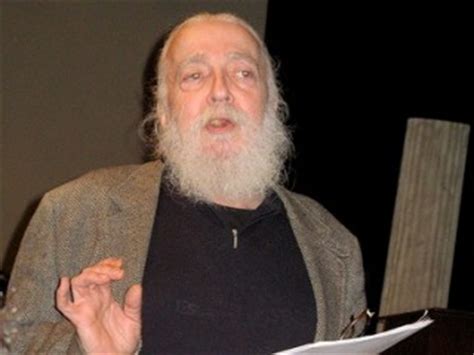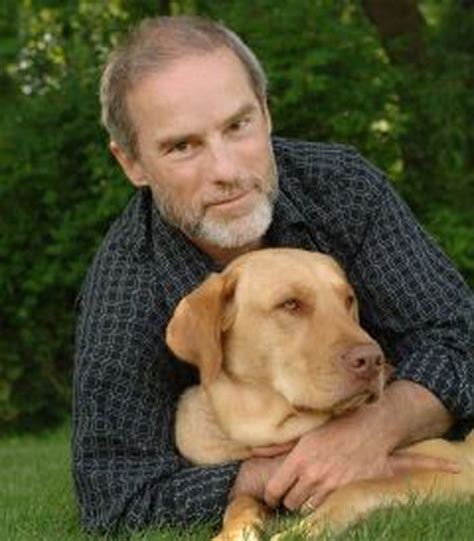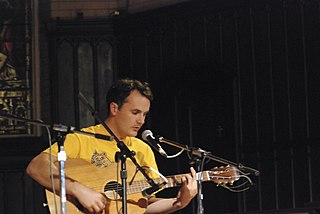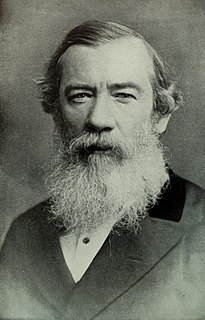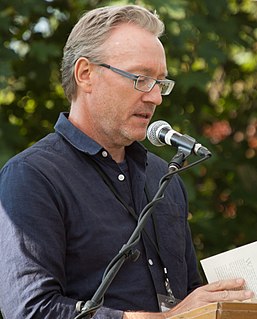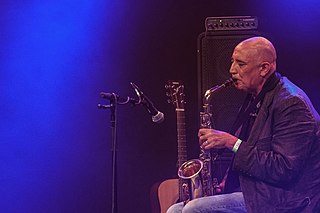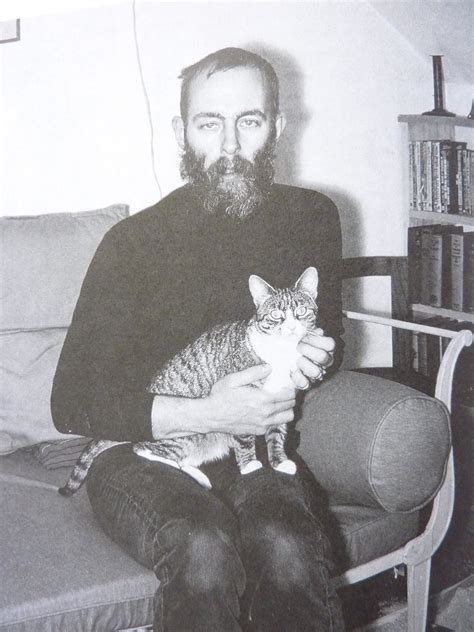Top 90 Skulls Quotes & Sayings - Page 2
Explore popular Skulls quotes.
Last updated on December 4, 2024.
There are four simple ways for the observant to tell Mr. Croup and Mr. Vandemar apart: first, Mr. Vandemar is two and a half heads taller than Mr. Croup; second, Mr. Croup has eyes of a faded china blue, while Mr. Vandemar's eyes are brown; third, while Mr. Vandemar fashioned the rings he wears on his right hand out of the skulls of four ravens, Mr. Croup has no obvious jewelery; fourth, Mr. Croup likes words, while Mr. Vandemar is always hungry. Also, they look nothing at all alike.
Provided we can escape from the museums we carry around inside us, provided we can stop selling ourselves tickets to the galleries in our own skulls, we can begin to contemplate an art which re-creates the goal of the sorcerer: changing the structure of reality by the manipulation of living symbols ... Art tells gorgeous lies that come true.
Then I dropped my forehead against his and sat there for a long time, as if I could telegraph a message through our two skulls, from my brain to his. I wanted to make him understand some things. You know all that stuff we’ve always said about you?” I whispered. “What a total pain you are? Don’t believe it. Don’t believe it for a minute, Marley.” He needed to know that, and something more, too. There was something I had never told him, that no one ever had. I wanted him to hear it before he went. Marley,” I said. “You are a great dog.
We've always had the blame-America crowd. We've always had the hate-America crowd. But we've now had at least two generations of education where this has been indoctrinated into the young skulls full of mush of young people. They've heard how horrible America was back in the days of slavery. They've heard how horrible America treated women. They've heard how horrible every minority group was treated. They've heard how mean-spirited the founders were. They've heard all kinds of literal lies.
We suddenly feel fearful and apprehensive, naked in our perishable flesh, and for just a moment we wish we could go back to being stone—crumbling in death rather than rotting, trapped inside an immobile prison of stone rather than reduced to immaterial souls like those that now rattled within our skulls. The moment passes. There is no point in regretting irreversible decisions—one has to live with them, and we try.
It's a beautiful idea to focus on how everything is temporary and always in flux. It may feel bad now, but it will feel good later, and vice versa. To write about those things brings this satisfying feeling as a creative person. There's a lot of music out there that's like, "I'm so mad! I'm sad! I'm into skulls and crossbones and the color black," and that's just meaningless and shallow. So much of metal is about that and it's hard to find metal that is substantial and meaningful in terms of its content.
War is a monster with snaky locks, and fiery bloodshot eyes, and harpy claws, passing over fair fields and leaving its footprints in burning villages, dying men, weeping wives and children, and needs to be seen by those who so eagerly clamour for it at every opportunity. The sight of that fearful phantom, girt round with skulls, chains reeking with blood and desolation and ruin in its track, would stop their eagerness for it, unless under real compulsion.
Sometimes, in the trenches, you get the sense of something, ancient. One trench we held, it had skulls in the side, embedded, like mushrooms. It was actually easier to believe they were men from Marlborough's army, than to think they'd been alive a year ago. It was as if all the other wars had distilled themselves into this war, and that made it something you almost can't challenge. It's like a very deep voice, saying; 'Run along, little man, be glad you've survived
If you don't have to pay for everything you're providing, why in the world should you cut the cost of it, when it's gonna be covered? That's what's happened to the health care system. Why cut costs when somebody's gonna subsidize whatever you charge. But there's another reason why tuitions are never gonna come down on major American universities, and that's because they are the training ground of American liberalism and radicalism. And they have to make jobs there attractive to the professors and the teachers who are gonna indoctrinate these young skulls full of mush.
Superhero science has taught me this: Entire universes fit comfortably inside our skulls. Not just one or two but endless universes can be packed into that dark, wet, and bony hollow without breaking it open from the inside. The space in our heads will stretch to accommodate them all. The real doorway to the fifth dimension was always right here. Inside. That infinite interior space contains all the divine, the alien, and the unworldly we’ll ever need.
Once, I discovered the skulls of two impala rams, their horns locked into an irreversible figure-of-eight; the two animals had been trapped in combat, latched to each other during the battle of the rut. The harder they had pulled to escape from each other, the more intractably stuck they were, until they had fallen exhausted, to their knees, in an embrace of hatred that had killed them both.
Out there people are working and arguing and laughing, living their beautiful, terrible lives, falling in love and having babies and being bored out of their skulls and feeling depressed, then being consoled by some little thing like watching the patterns the light makes through the leaves of trees, casting shadows on the sidewalks. I remember the line from that poem now. Downward to darkness, on extended wings.
The novel's not the best form for disposing ideas, though that's one thing it can do. It likely is the best form, though, for conveying the experience of us each being alone, trapped in our skulls with only these bodies and this imperfect instrument of language to convey our state and to find meaning and connection.
The traditional doctrine of man and not the measurement of skulls and footprints is the key for the understanding of that anthropos who, despite the rebellion of Promethean man against Heaven from the period of Renaissance and its aftermath, is still the inner man of every man, the reality which no human being can deny wherever and whenever he lives, the imprint of a theomorphic nature which no historical change and transformation can erase completely from the face of that creature called man.
In childhood our credulity serves us well. It helps us to pack, with extraordinary rapidity, our skulls full of the wisdom of our parents and our ancestors. But if we don't grow out of it in the fullness of time, our ... nature makes us a sitting target for astrologers, mediums, gurus, evangelists, and quacks. We need to replace the automatic credulity of childhood with the constructive skepticism of adult science.
England has to fulfill a double mission in India: one destructive, the other regenerating - the annihilation of old Asiatic society, and the laying the material foundations of Western society in Asia... When a great social revolution shall have mastered the results of the bourgeois epoch... and subjected them to the common control of the most advanced peoples, then only will human progress cease to resemble that hideous, pagan idol, who would not drink the nectar but from the skulls of the slain.
I love 'Donnie Brasco' and 'Days of Thunder,' so after I did 'The Skulls,' I was like, 'I want to be either an undercover cop, or I want to race cars!' Universal came to me with a newspaper article about street racing in L.A., and I was like, 'Are you kidding me? I grew up doing that right off Peoria in Sun Valley.' They asked if I wanted to do it.
Everybody should do in their lifetime, sometime, two things. One is to consider death...to observe skulls and skeletons and to wonder what it will be like to go to sleep and never wake up-never. That is a most gloomy thing for contemplation; it's like manure. Just as manure fertilizes the plants and so on, so the contemplation of death and the acceptance of death is very highly generative of creating life. You'll get wonderful things out of that.
As for the primitive, I hark back to it because we are still very primitive. How many thousands of years of culture, think you, have rubbed and polished at our raw edges? One probably; at the best, no more than two. And that takes us back to screaming savagery, when, gross of body and deed, we drank blood from the skulls of our enemies, and hailed as highest paradise the orgies and carnage of Valhalla.
The education system is where young skulls full of mush are programmed and propagandized into the system. They are highly valuable. That's why they're subsidized. You know, universities are approaching the same circumstance we have in health care. What it costs is not related at all to market forces. Meaning what it costs is not related to what people can afford. You get right down to it, how many Americans, how many families can afford 20,000, 30,000, $50,000 a year or semester to send their kids off to college? It has to be subsidized.
My sense of humor keeps me from committing atrocities! I love rearranging words and destroying language and the established forms of art and music/challenging the reasoning of others. I'm not satisfied with the state of humanity. If I must live on the same planet as Mr and Mrs out of touch, I will do whatever I can to jolt their zombie-ass skulls from the upside-down veal market they hang from.
To value the tradition of, and the discipline required for, the craft of fiction seems today pointless. The real Arcadia is a lonely, mountainous plateau, overbouldered and strewn with the skulls of sheep slain for vellum and old bitten pinions that tried to be quills. It's forty rough miles by mule from Athens, a city where there's a fair, a movie house, cotton candy.
Chain me with roaring bears;
Or shut me nightly in a charnel-house,
O'er-covered quite with dead men's rattling bones,
With reeky shanks and yellow chapless skulls;
Or bid me go into a new-made grave,
And hide me with a dead man in his shroud;
Things that, to hear them told, have made me tremble;
And I will do it without Fear or Doubt,
To live an unstain'd Wife of my sweet Love.
I used to skate a lot when I was a kid. I loved it and was quite good. When I came back to London in around '85, I got really into skating again. But at the time, it had no influence from hip-hop. It was just thrash rock, hardcore rock, and skulls and all black - that kind of style. In Japan, the skaters were also strictly into rock culture, too, but I was coming from the hip-hop side, so for a while it was difficult to mix both interests.
Harvey wasn't interested in the clothes, it was the masks that mesmerized him. They were like snowflakes: no two alike. Some were made of wood and of plastic; some of straw and cloth and papier-mâché. Some were as bright as parrots, others as pale as parchment. Some were so grotesque he was certain they'd been carved by crazy people; others so perfect they looked like the death masks of angels. There were masks of clowns and foxes, masks like skulls decorated with real teeth, and one with carved flames instead of hair.
In a sense, Open City is a kind of Wunderkammer, one of those little rooms assembled with bric-a-brac by Renaissance scholars. I don't mean it as a term of praise: these cabinets of curiousities contained specific sorts of objects - maps, skulls (as memento mori), works of art, stuffed animals, natural history samples, and books - and Open City actually contains many of the same sort of objects. So, I don't think it's as simple as literary inclusiveness.

